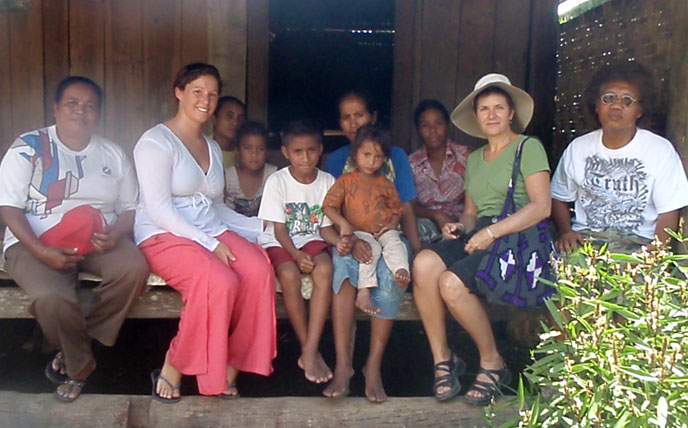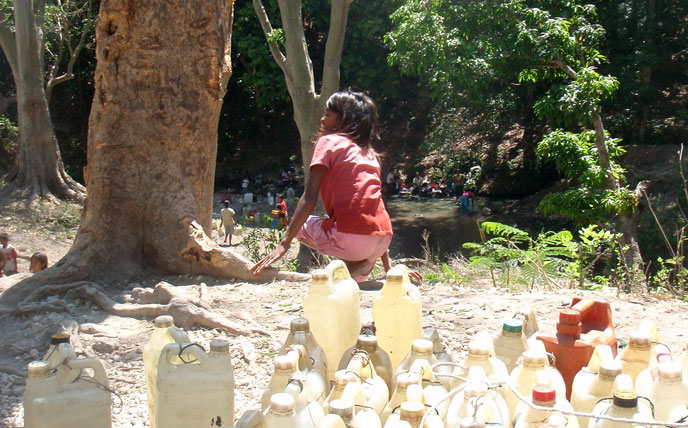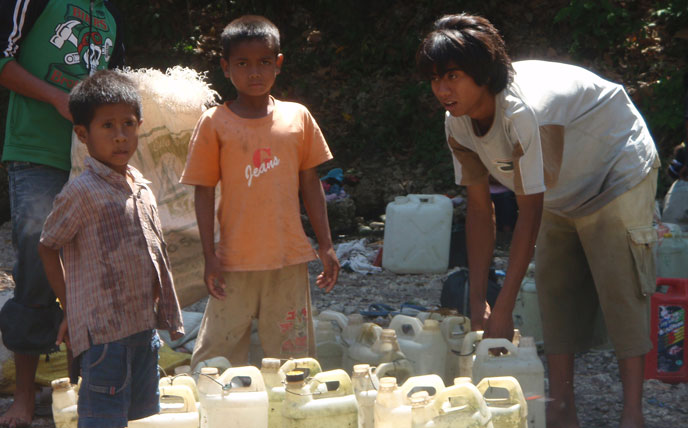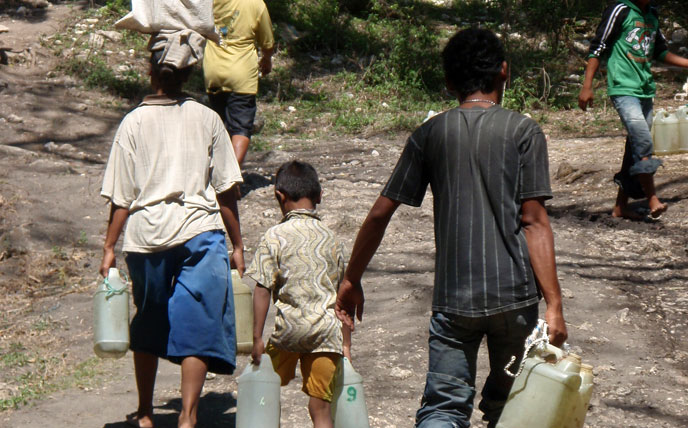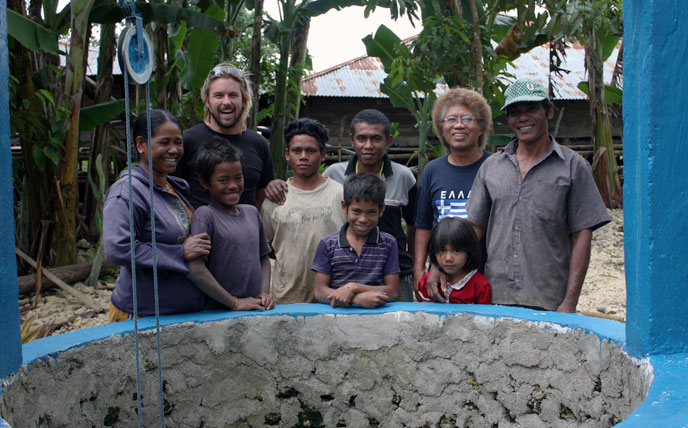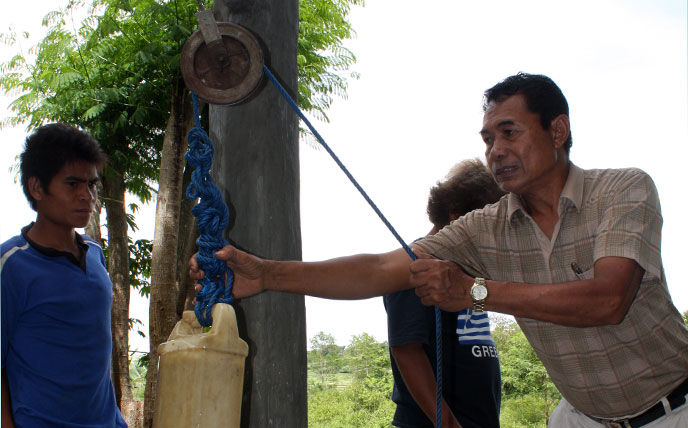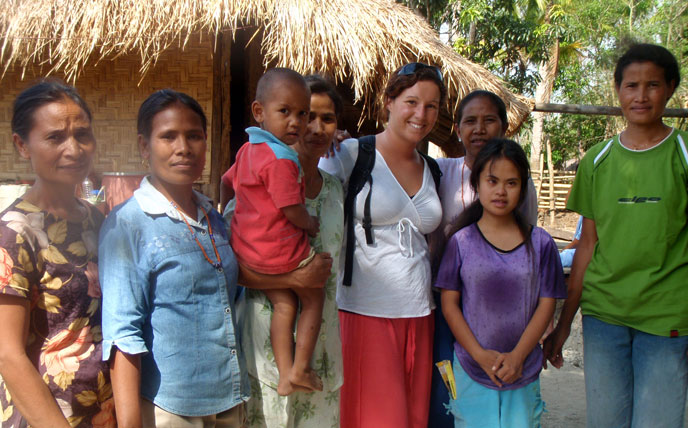Sumba, located in Nusa Tenggara, Timor is one of the poorest islands in Indonesia.
The problems that the people of Sumba face have lead to an unending cycle of poverty that has not improved in over twenty years except in small enclaves.
The key to breaking this cycle is water. For many people the day revolves around obtaining enough water to survive, and starts with a walk of up to 5km to fill one bucket and then return. This is a daily routine during the dry season and even in the wet season, there are no effective systems to store water.
HEALTH ISSUES
The compound effect of this lack of water leads to serious health issues and also to malnutrition. Public works employees have confirmed that currently there are no plans for water supply construction in Sumba, leaving the Sumbanese people with little hope of lifestyle improvement.
Surveys of schools and clinics in the area found that over 90% did not have running water, nor a water source nearby. None had functioning toilets. As a result, hygienic conditions are extremely poor, rivers are contaminated by cattle, and are an ideal breeding ground for disease.
EMPOWERING THE COMMUNITY
Easy accessible supplies of water will lead to vast improvements in the locals lives. Through funds raised in Strandhill, SIRF has built three of these wells which will allow for village development and planning from the bottom upwards, with the villagers providing their input for change and improvements.
MUMBALI has agreed to mentor the villagers and then work with them to create adjacent to the wells, fruit and vegetable gardens alongside the program for community development. The villagers agree to create these gardens without any financial support, apart from cost of seeds, from MUM and also to build by themselves fences to protect the wells and also the gardens from animals and straying children.


